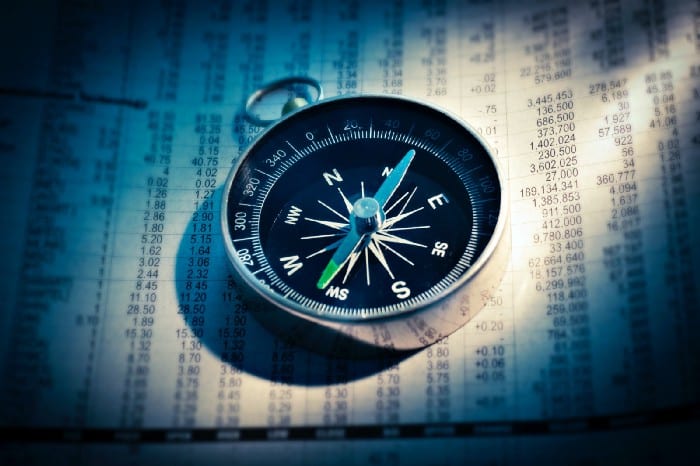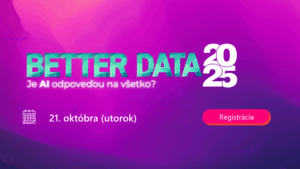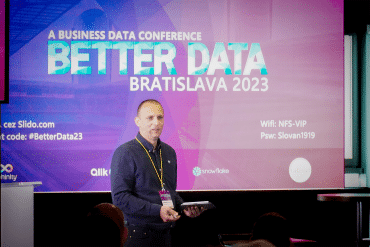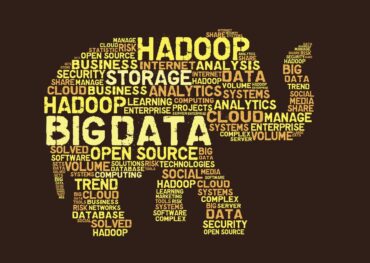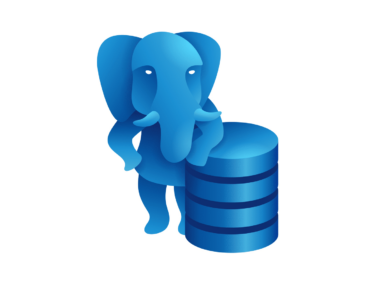Before I get to the data literacy, let me start with something else. How do you differentiate high class and middle class? Obviously, by (annual) income and/or net worth. But money is just a result. People with money usually have a unique set of skills that sets them apart.
In medieval times, reading and writing skills in itself would be sufficient to set you apart. Literacy was not that common and was mostly characteristic of the upper-middle or higher class.
This is mostly because reading and writing have very broad use. It’s not niche. It is and was used in almost every aspect of personal and professional life. Reading also improves your knowledge dramatically.
So what is such a skill in the 21st century?
I would like to make a case it’s the ability to understand data and work with it. Data literacy. It is THE differentiator of the modern age because data is everywhere.
In fact, 90% of the data has been created in the last 2 years. Predictions show there will be about 50 billion connected devices by 2030. Currently, there are around 3,5 billion smartphones, representing people with access to the Internet in their pocket, reading articles, browsing social networks, chatting with friends, and much more. Data is everywhere in personal life as well as business.
Here are some examples of personal life:
- I get my credit card or bank statements — do I know what to look for? Trends in spending, distribution of spending among housing, car, food,…
- Time spent on a phone in different apps — how am I spending my time? What can be improved?
- How many emails do I send each day? Which day of the week was the most productive in the last 6 months?
- I use a smartwatch to track my heart rate and sleep — when am I getting a good night’s sleep? When is my heart rate generally good? Can I identify patterns?
Now obviously there’s much value hidden in data for companies:
- in production lines, you can analyze performance, potential vibrations that indicate upcoming shutdown, or energy consumption,
- you can correlate weather with energy consumption and thus predict revenue of utility and energy companies
- in retail, a company can (and does) segment the popularity of products, creates a profile of each and every buyer that uses their club card, etc.
There are even much more advanced use-cases that I don’t want to get into just yet.
The point is, humans first started using language to improve communication around 50 thousand years ago. Nowadays, we are enabling more and more devices and machines to generate data and try to „talk to us“. Servers, smartphones, laptops, tablets, smartwatches, Smart Home devices, ERPs, CRMs, IoT devices, and all kinds of sensors — all generating enormous and unprecedented amounts of data.
And yet — what’s the current status of our data literacy?
The research surveyed 7,377 business decision-makers (junior managers and above). Respondents across Europe, Asia, and the US.
It may seem strange or embarrassing that C-level executives are just slightly more data literate than 16–24 year-olds. It’s not at all. We just haven’t adapted to this data boom yet.
Data span every industry, every functional area, and almost every aspect of life (unless you’re living in the mountains without water, gas, or electricity). That’s why it is important to make it effortless to read, work with, analyze, and act on data, whether on a large scale in a company or in your personal life.
We are being bombarded with information
The era of our grand-parents and grand-grand parents was simple. Access to information was limited to local newspapers, a “solid and bulletproof” source of “my neighbors said”, the wisdom of their parents and grandparents, etc. They did not learn much, but what they learned rarely had any contradiction or opposition.
“Filtering” the information wasn’t that important, because there wasn’t so much data noise. Now it is. It’s our defense against extremist ideologies, against dangerous social bubbles.
Today everybody thinks they can be a know-it-all with their smartphone, internet connection, and quick fingers. Only that this is not true. And that’s the main point.
The first information we encounter may not always be the right one. In the supermarket, we try to choose the best looking bananas or apples just by looking at them. This works, because it’s a simple task. However, the more complex the topic or decision, the more difficult it is to recognize what is better, what is right or what is true.
Conclusion
Understanding and working with data is key for individuals and businesses that want to adapt to a fast-changing world. There’s a lot to cover to help us navigate oceans of data efficiently, understand our biases, and work with them. I would refer to a combination of these skills as data intelligence or data literacy. Our goal should be clear — taking complex approaches to understand data and our biases and making them comprehensible for everyone. Apart from my other blogs on blogs.emarkanalytics.com, we have made a blog about this with a few of my colleagues. Feel free to check it out. https://datalligence.com/. I will be also posting on this topic on Medium quite frequently.
—-

